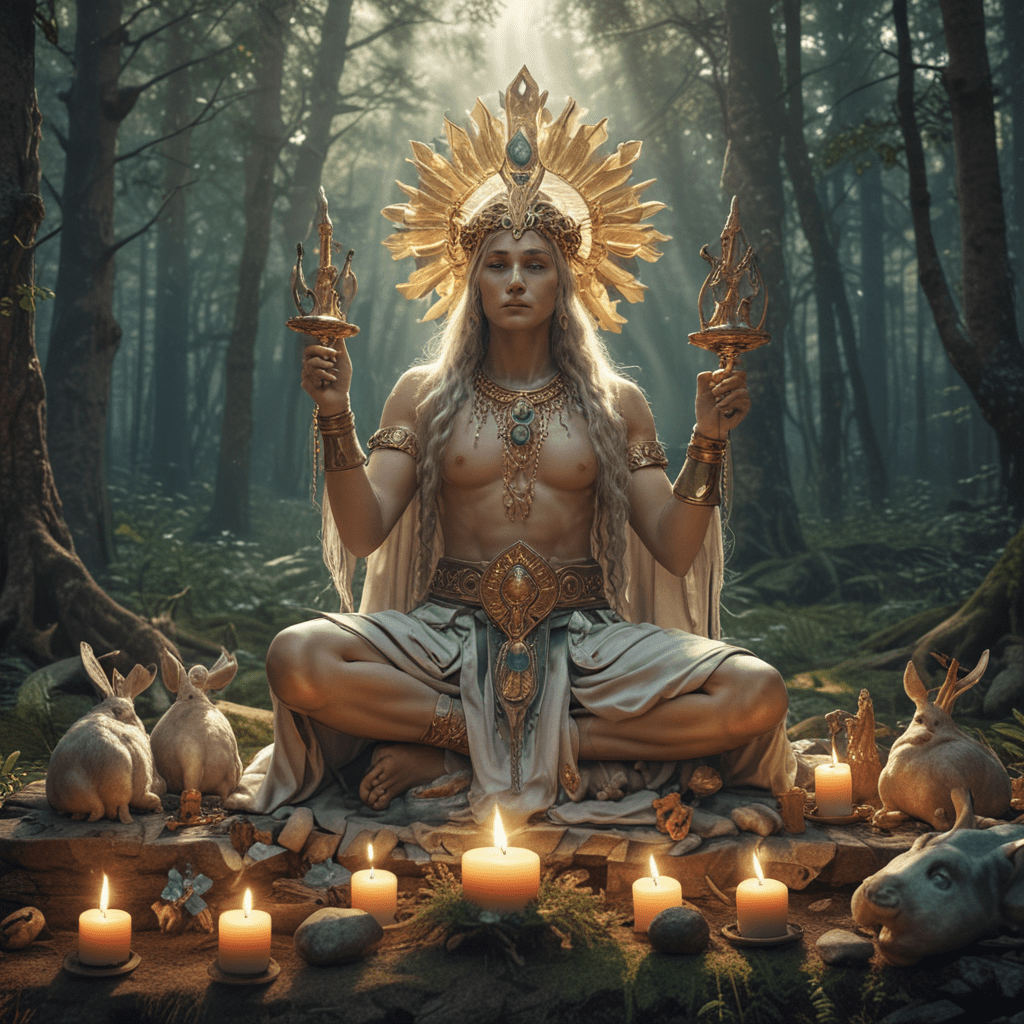The Allure of the Mythical: Love Stories That Transcend Reality
1. Introduction: The Intersection of Myth and Love
Throughout history, love stories have captivated audiences, transcending time and cultural boundaries. From ancient tales whispered around campfires to modern adaptations in literature and film, mythical love stories resonate with fundamental human emotions. These narratives challenge our understanding of reality, inviting us into worlds where love defies the odds, and where passion conquers all. As we explore the intersection of myth and love, we uncover the significance of these stories across various cultures, and why they continue to allure us today.
2. Understanding Myth: Definitions and Cultural Perspectives
Myths are traditional stories that serve to explain natural phenomena, customs, and beliefs within a culture. They often involve gods, demigods, and legendary heroes, and are steeped in symbolism and moral lessons. The role of myths in human culture cannot be overstated; they form the bedrock of our collective storytelling, providing frameworks through which we interpret our experiences, values, and identities. Myths are not merely ancient artifacts; they are living narratives that evolve with society.
3. Timeless Themes in Mythical Love Stories
Mythical love stories often explore themes that resonate deeply with human emotions and experiences. Common motifs include:
- Forbidden Love: Relationships that defy societal norms or familial expectations, often leading to tragic consequences.
- Sacrifice: The willingness to give up something valuable for the sake of love, highlighting the depth of commitment.
- Transcendence: Love that transcends time and space, suggesting a connection that goes beyond the physical world.
These themes reflect universal aspects of love—its joys, struggles, and the transformative power it holds over individuals and societies.
4. Classic Myths: Love Stories from Ancient Civilizations
Ancient civilizations have bequeathed us a wealth of mythical love stories. Notable examples include:
- Orpheus and Eurydice: A poignant tale of love and loss, where Orpheus descends into the Underworld to retrieve his beloved Eurydice, only to lose her again due to a moment of doubt.
- Isis and Osiris: This Egyptian myth tells of the undying love between the goddess Isis and her husband Osiris, whose resurrection symbolizes eternal love and life.
- Psyche and Eros: A story of trials and tribulations, where Psyche’s love for Eros leads her through challenges that ultimately unite them in everlasting love.
These myths not only entertain but also explore complex emotional landscapes, revealing insights into human relationships.
5. Folklore and Fairy Tales: Love Beyond the Ordinary
Folklore and fairy tales offer another rich vein of mythical love stories. From the innocent romance of Cinderella to the tragic tale of Beauty and the Beast, these narratives often contain elements of magic and moral lessons. The impact of fairy tales on modern perceptions of love is profound, as they shape our ideals of romance, heroism, and happily-ever-afters. Key themes in these stories include:
- The triumph of love over adversity.
- The importance of personal growth and transformation.
- The notion of true love as a powerful force that can overcome any obstacle.
These tales remind us that love can be both enchanting and challenging, reflecting the complexities of real-life relationships.
6. Literary Adaptations: Transforming Myths into Modern Narratives
Contemporary authors have breathed new life into mythical love stories, reinterpreting them for modern audiences. Notable works include:
- “The Song of Achilles” by Madeline Miller: A retelling of the Iliad through the eyes of Patroclus, exploring the deep bond between him and Achilles.
- “Circe” by Madeline Miller: A feminist retelling of the life of Circe, weaving themes of love, power, and transformation.
- “The Penelopiad” by Margaret Atwood: A retelling of the Odyssey from Penelope’s perspective, highlighting her cunning and loyalty.
These adaptations illustrate how timeless themes of love can be reframed to resonate with contemporary issues and values, making ancient stories relevant today.
7. Mythical Love in Film and Media: Visual Storytelling
Film and television have played a crucial role in popularizing mythical love stories, bringing them to life through visual storytelling. Notable examples include:
- “Titanic”: A modern retelling of star-crossed lovers, echoing themes of sacrifice and social division.
- “The Shape of Water”: A unique love story between a mute woman and a mysterious aquatic creature, blending elements of fantasy and romance.
- “The Iliad” adaptations: Various films and series that portray the epic love and tragedy of Achilles and Patroclus.
Through visual media, these narratives gain new dimensions, influencing public perception and appreciation of mythical love stories.
8. Psychological and Emotional Resonance of Mythical Love
Mythical love stories evoke powerful emotions, often tapping into our deepest desires and fears. The fantastical elements allow audiences to explore aspects of love that may seem unattainable in reality. Themes of longing, loss, and redemption resonate with our own experiences, making these stories profoundly relatable. The role of fantasy in human relationships is significant; it allows us to dream, aspire, and even heal through the exploration of idealized love.
9. Cultural Significance: Myths That Shape Societal Values
Mythical love stories reflect and influence societal norms and values. They often challenge prevailing attitudes towards love, gender roles, and relationships. For instance, stories that depict strong, independent women challenging societal expectations can inspire movements for gender equality. Additionally, these narratives can foster discussions about the nature of love, commitment, and personal sacrifice, encouraging deeper reflections on our own relationships.
10. Conclusion: The Enduring Legacy of Mythical Love Stories
The allure of mythical love stories is timeless, transcending generations and cultures. They remind us of the power of love to inspire, transform, and connect us. As we preserve and share these narratives, we keep alive the lessons and emotions that they embody. In an ever-changing world, mythical love stories continue to resonate, offering a glimpse into the eternal dance of love and the human experience.



